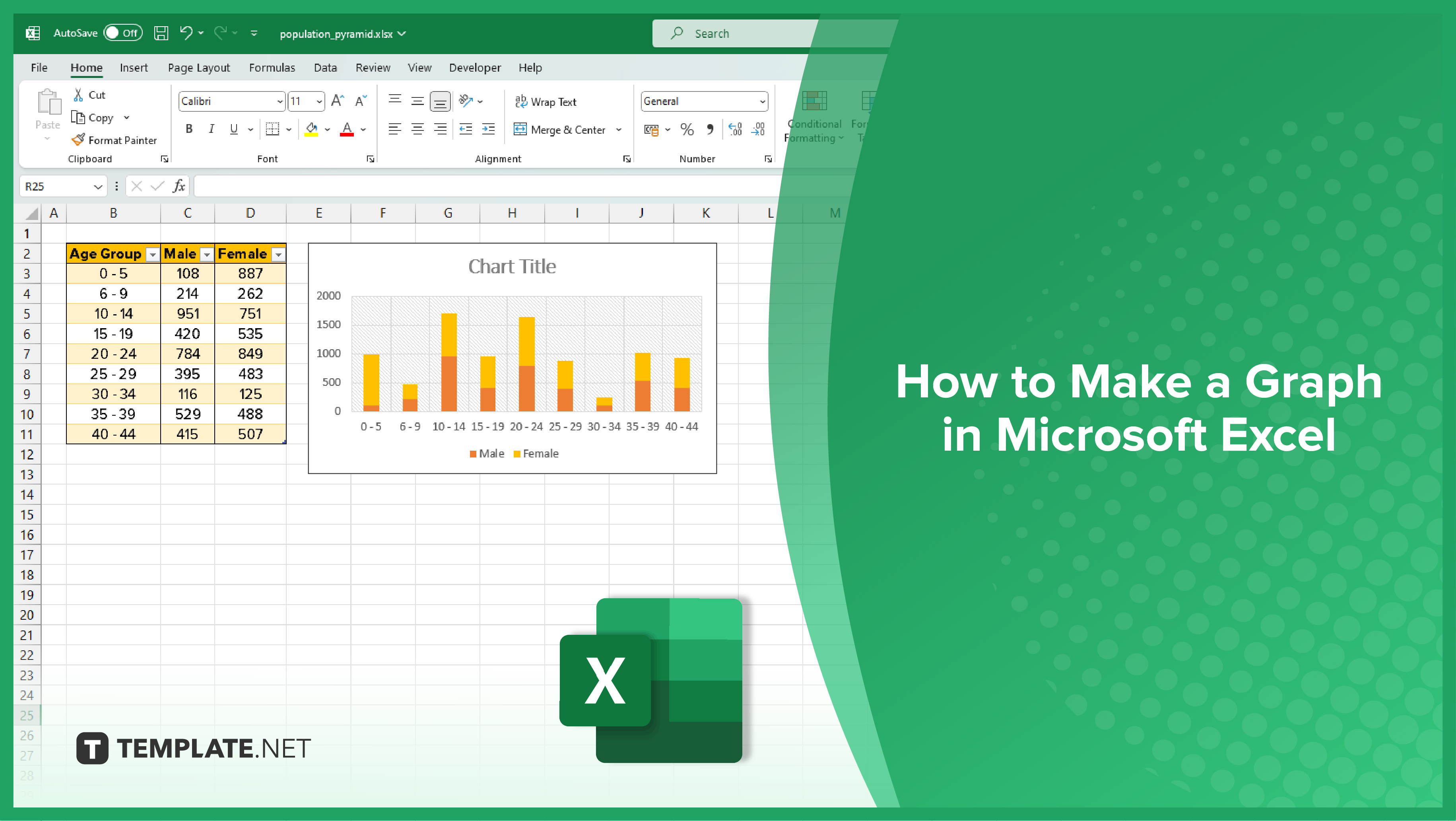How to Make a Graph in Microsoft Excel
Microsoft Excel is not just a tool for data entry and calculation; it’s also an excellent platform for visualizing data. In this guide, you’ll learn how to make a graph in Excel, turning your raw data into informative and engaging charts.

Make a Graph in Microsoft Excel
-
Step 1. Selecting the Data for Your Graph
The journey to creating an effective graph in Excel begins with data selection. Click and drag your mouse over the cells containing the data you want to graph. If your data is organized into rows or columns, a simple click on the respective row or column header will select the entire set. It’s important to remember that the selection method impacts your graph’s structure. Selecting a single row or column prompts Excel to generate a graph with one data series. Conversely, selecting multiple rows or columns will result in a graph with various data series, offering a more comprehensive view.
-
Step 2. Inserting the Graph
After selecting your data, proceed to insert a graph by navigating to the ‘Insert’ tab on Excel’s ribbon. This action reveals a variety of graph types from which you can choose. Select the graph style that best suits your data, and Excel will introduce a basic version of it into your spreadsheet. This initial graph is a blank canvas, ready to be transformed and customized to better suit your presentation needs.
-
Step 3. Customizing Your Graph
The final step is to personalize your graph, making it not only visually appealing but also easy to interpret. Click on the ‘Chart Tools’ tabs in the Excel ribbon to explore a range of customization options. Here, you can modify the graph’s colors, add essential labels and titles, and adjust the scales of the axes. Labels and titles are particularly crucial as they provide context to your data. A well-chosen title conveys the graph’s purpose, axis labels clarify the dimensions, and a legend makes it easy to understand the representation of each data series. These customizations are key to transforming your graph from a simple visual into an insightful, clear representation of your data.
You may also find valuable insights in the following articles offering tips for Microsoft Excel:
FAQs
How do I start making a graph in Excel?
Begin by selecting the data you want to graph, either by dragging across the cells or clicking the row/column headers.
What types of graphs can I create in Excel?
Excel allows you to create various graphs, such as bar, line, pie, column, and area charts, among others.
Can I make a graph with multiple data series in Excel?
Yes, you can create a graph with multiple data series by selecting multiple rows or columns of data.
How do I add titles and labels to my Excel graph?
Use the ‘Chart Tools’ tabs in the Excel ribbon to add and customize titles, axis labels, and legends.
Is it possible to change the style and color of my graph in Excel?
Yes, under the ‘Chart Tools’ tabs, you have options to change the graph’s style, color, and overall appearance.






